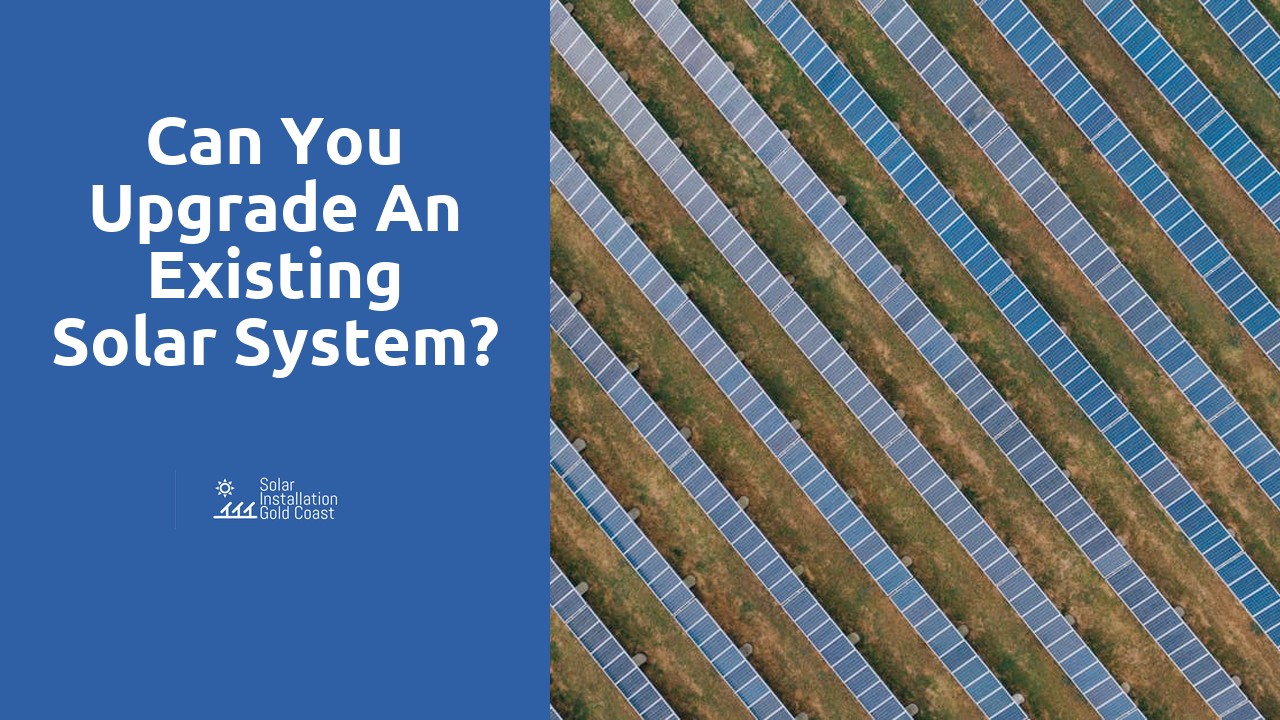Can you upgrade an existing solar system?

Table Of Contents
ce. Additionally, consider requesting quotes from multiple installers to compare prices and services offered. A reputable installer will provide you with a detailed plan for the upgrade, including the costs involved and the expected timeline for completion.
Finding a reputable solar panel installer
When looking to upgrade your current Solar Panel System, finding a reputable solar panel installer is crucial for a successful transition. These professionals have the knowledge and expertise to ensure the upgrade is done correctly and efficiently. It is advisable to research different solar panel installers in your area to find one that has a solid reputation and experience in handling Solar Panel System Upgrades. Reading customer reviews and checking their certifications can give you a good idea of the quality of work they provide.Posted By
Additionally, scheduling consultations with prospective solar panel installers can help you gauge their professionalism and competence. During these consultations, you can discuss the specifics of your Solar Panel System Upgrades and assess whether the installer is able to meet your needs and expectations. By taking the time to find a reputable solar panel installer, you can have peace of mind knowing that your upgraded solar system is in good hands.
Maintenance tips postupgradeon
After upgrading your solar panel system, it is crucial to focus on regular maintenance to ensure optimal performance and longevity. One of the key maintenance tips post-upgrade is to schedule routine inspections by a professional solar panel installer. These inspections help in identifying any potential issues early on and addressing them promptly to prevent any further damage to the system. Additionally, keeping the solar panels clean from dirt, dust, or any debris can significantly impact the efficiency of the system. Regular cleaning can be done using a gentle detergent, water, and a soft brush to maintain the panels' effectiveness in converting sunlight into electricity. Remember to avoid using abrasive materials or harsh chemicals as they can damage the panels.
Moreover, monitoring the performance of your upgraded solar system is essential to detect any fluctuations or inefficiencies promptly. Familiarise yourself with the data provided by solar system monitoring tools to understand the energy production, consumption patterns, and overall system health. By regularly checking and analysing this data, you can proactively address any issues that may arise and ensure that your system is functioning optimally at all times. Remember, a well-maintained solar panel system not only saves you money in the long run but also contributes to a sustainable energy future.2024-04-18
Ensuring optimal performance of your upgraded solar system
To ensure optimal performance of your upgraded solar system, regular maintenance is essential. This includes keeping the panels clean and free from debris, such as leaves or bird droppings, which can obstruct sunlight absorption. Additionally, monitoring the system's performance regularly can help identify any issues promptly. By staying proactive, you can address any concerns swiftly and prevent them from escalating and affecting the efficiency of your Solar Panel System Upgrades.
Furthermore, scheduling annual inspections by a qualified professional can help maintain the health of your solar system. These experts can identify any potential problems and provide solutions before they impact the performance of your system. By investing in regular maintenance and inspections, you can ensure that your upgraded solar system continues to operate efficiently and generate maximum energy savings for your home.
How can I ensure optimal performance of my upgraded solar system?
To ensure optimal performance of your upgraded solar system, monitor its output regularly, adjust the settings for maximum efficiency, and keep track of any changes in performance.
How do I monitor the performance of my solar system?
You can monitor the performance of your solar system by using monitoring tools provided by your installer, checking the energy output regularly, and looking out for any unusual patterns or deviations.
How can I understand the data provided by my solar system monitoring tools?
To understand the data provided by your solar system monitoring tools, familiarize yourself with the key metrics such as energy production, consumption, and efficiency, and seek guidance from your installer if needed.